
Voices of ASHE
Voices of ASHE highlights individual members and their diverse experiences. We aim to celebrate our members and the amazing work you do, so please share your story today or nominate a colleague who you think should be featured. There are no criteria required related to years on the job, title or background. Sharing stories will inspire current members and future professionals, and will broaden the health care field’s awareness of who we are and what we do.
Share your story! Nominate a colleague!
National Health Care Facilities & Engineering Week Featured Members
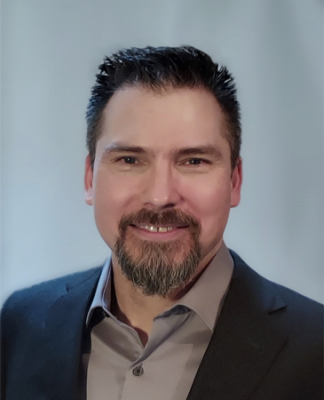
Stephen Wickline, CHFM, CLSS-HC
Senior Manager of Facilities
Providence-Swedish
Puget Sound, Washington
How did you end up in this field?
It's what my dad did most of my life. After my first two careers, cooking in restaurants and working as a technician, crew lead and production manager in the entertainment industry, I was ready for a change. My father was gearing up to retire and talked me into joining his organization and starting this career back in 2008. Honestly, I was reluctant at first. I actually thought to myself: "I don't want to do what my dad does... That's lame." But thank God, despite my initial thoughts, I gave it a shot; because it hardly took anytime for me to discover that I really had knack for this stuff. That I truly enjoyed it and quickly excelled at it.
What do you like about your work?
Much like the front-line engineers on my teams, I'm a tinkerer! I love troubleshooting and problem-solving. And as a manager, I thrive on team building, interdepartmental coordination and geeking out on the minutiae of each of the hats I get to wear.
Then there's the connection to the mission. My first hospital was a freestanding acute psychiatric hospital, where that connection to mission is palpable. That got written into my DNA, and I'm kind of addicted to it now.
What challenges do you face at work today?
Of course, the usual suspects like resources, time management and the rapidly changing landscape of our field. But also, as a by-product of those pressures, I find that effective communication, coordination and partnerships can get challenging. Because the core challenges of resources, time management and the rapidly changing landscape of our field do apply so much pressure to everyone we work with, people get stressed and sometimes aren't sure how to react to one another.
All things considered, I feel that, now more than ever, it is critical that we all give each other the benefit of the doubt, assume good intentions and make relentless efforts to set each other up for success.
Tell us about your experience with ASHE.
How did you get involved with ASHE?
In 2008, one of my vendors told me: "You gotta join ASHE." So, I did.
What chapter experience do you have?
My first local chapter was in Region 9, the San Diego (local) Chapter of the California Society for Healthcare Engineering (CSHE). There, I attended monthly meetings regularly and participated in CSHE hosted education events. One of those events was a webinar hosted by the Orange County CSHE Chapter and led by Devin Hugie, who instantly became a huge inspiration to me.
Then, when I moved to Seattle and joined the Puget Sound Chapter of the Washington State Society for Healthcare Engineering (WSSHE) in Region 10, I dove right into full engagement. In 2018 I served as president of my local chapter, and then from 2019 through 2022 I served as chair of that chapter's membership committee.
How has ASHE helped your career?
ASHE makes me better at what I do all the time. Industry standards matter. Partnership and fellowship-driven continuous education matters. Being a part of unified efforts in support of a shared mission matters. These things deliver value to the health care organizations that employ me, and I get these things from ASHE.
Why should others in the field join ASHE?
You'll have to indulge me a snarky moment for this one. This question reminds me of a line of dialogue from a movie, in which a dentist character said to his patient: "Only floss the [teeth] you want to keep!”
Similar principle here, in my opinion... only join ASHE if you're serious about this field of work.
Tell us about your professional journey.
What are some of your professional goals?
One goal is to be in a position of greater influence to my organization. One of my greatest strengths (in my opinion) is the diversity of my professional background. Health care is my third career, and since I got here, I've held leadership positions in an uncommonly wide variety of environments: Two different freestanding acute psychiatric hospital organizations; two different long-term acute care hospital organizations; a world-class children's hospital; and a multi-state system of general acute care hospitals.
At a few of those served as a director overseeing many departments, including facilities operations, facilities construction, environmental services, clinical engineering, safety and security, emergency management, materials supply-chain logistics, and food and nutrition services. I’ve chaired multiple hospital committees and have been a member of the areas of concentration rotation at one of my hospitals.
I feel that all that experience has built me into someone with a refined sense of the bigger picture when it comes to hospital operations. I have developed an intuitive understanding of how the dots connect and dynamically interact with each other. All that considered, I feel that I have some valuable perspective to contribute, and that perspective might be more effectively contributed from a position of influence north of line manager.
What would your dream job be?
I really don't know yet. I've had a lot of very different thoughts on that over the years, but these days I'm just enjoying the journey to whatever that might be.
What advice would you give your younger self?
I truly love the whole story of my younger self, even the tragic parts of that story. But if I had the opportunity to advise the younger me, I would offer advice focused on self-confidence, courage and humility.
Who has been a big influence in your professional journey?
When I was new to this field and got exposed to the work Devin Hugie was doing in the Orange County CSHE Chapter, it made a major impression on me. I actually told myself, "I gotta figure out how to be that guy" ... I'm still working on it.
Tell us about your time away from work.
What do you like to do in your spare time?
I'm kind of a couch potato and huge sci-fi geek. I love movies and live music. And I spend a whole lot of time working on fixer-upper projects at my house.
What hobbies do you have?
I honestly have trouble making time for activities that qualify as hobbies, though I did purchase a used banjo a few years ago and have made off-and-on efforts to learn to play it.
Tell us an interesting fact about yourself.
Back in the 1990s, I wrote, produced and directed two "micro-budget" independent motion pictures.
Tell us about one interesting thing on your “bucket list”.
About 18 years ago, I started writing a screenplay for a Christmas movie. I intend to finish writing that and get it produced before I die.
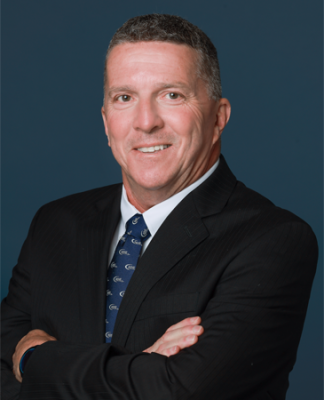
Don Page, MBA, CHFM
Director of Facilities
Good Samaritan Hospital
Vincennes, Indiana
How did you end up in this field?
Health care was not a field that I was familiar with, although I had attempted to enter it about 18 years ago without any luck. I was working as an engineer when I was made aware, and suggested to apply by a friend, that the director of engineering job would be open soon at Good Samaritan.
Always looking to make a difference in what I do in life. I applied and was fortunate enough to be selected to fill the role. That was 14 years ago now and could not be happier with my decision!
What do you like about your work?
Boy! So many things .... Being able to provide an environment that is comfortable and safe for the patients, visitors, and family is very rewarding. Knowing that they are facing some difficult times, they do not need to be uncomfortable or concerned for their loved ones safety. I also enjoy the ever changing environment, what challenges will we face next and how will we overcome it?
What challenges do you face at work today?
Skilled labor shortages and the constant battle to secure the much needed capital to maintain the infrastructure moving forward. Additionally, where will the future facility managers come from?
Tell us about your experience with ASHE.
How did you get involved with ASHE?
The facility manager at Good Samaritan informed me about ASHE when I started in health care --- joined immediately. I have now had the pleasure of serving on the ASHE advisory board for the past 2 years, and look forward to serving for an additional 2 years (thru 2026).
What chapter experience do you have?
The local chapter was really the eye-opener for getting involved and the importance of networking with your colleagues, in this case, around the state. I have served the past 8 years on the ISHE board including president in 2021. Without a doubt some of the most giving, caring people I have met -- exactly who you want serving in these positions.
Why should others in the field join ASHE?
ASHE educational material and networking opportunities are a must for anyone getting involved in health care. Being able to pick up the phone and call other health care professionals (across the country) is indeed priceless!
Who has been a big influence in your professional journey?
I would have to say, like many, it was my DAD. Although there were many along with way that taught me specifics of job(s). Growing up on a farm with a dad that knew the importance of common sense and going out of your way to make a difference in someone else's life are the cornerstone of my career.
Tell us about your time away from work.
What hobbies do you have?
I will say my hobbies have changed over the years but the fact that they are ALL "outdoor" hobbies hasn't. I am an avid hunter, distance runner, pickleball player, and enjoy the occasional round of golf at this point in my life.
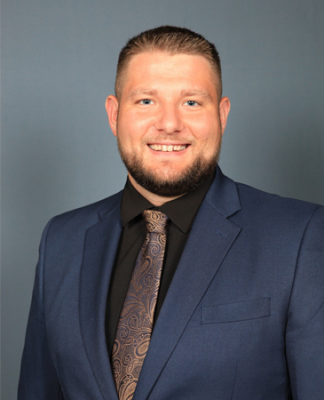
Walker Golubiff
Facilities Manager
Mayo Clinic Health System
Menomonie, Wisconsin
How did you end up in this field?
I stumbled upon it. There happened to be a maintenance job at a nursing home and I thought it looked interesting.
What do you like about your work?
I like how fast paced everything is and the variety in the work. I also like knowing that what I do has an impact on the health and satisfaction of our patients.
What challenges do you face at work today?
The aging workforce. There are a lot of skilled mechanics that are retiring out of the field, with very few people backfilling those positions.
Tell us about your experience with ASHE.
How did you get involved with ASHE?
I had joined the Wisconsin Healthcare Engineering Associated and some other members were talking about ASHE. Once I found out about it, I did some more research and figured out what events or education I could obtain through ASHE.
What chapter experience do you have?
I am part of the Wisconsin Chapter. Through the chapter I have met other local health care facilities leaders who I can reach out to if needed. Everyone is more than willing to help out where they can and teach people in the younger generation like me.
How has ASHE helped your career?
ASHE has provided great education and resources I use every day. The most valuable thing to me, though, is how it has expanded my network. I've been fortunate enough to meet people from all around the world with unique experiences. Some of them I would call my friends, but everyone I have met has been willing to teach and share what they have learned, which has helped me grow in my career.
Why should others in the field join ASHE?
ASHE is the go-to resource when I need support. I couldn't imagine being in this field and not having ASHE to lean into when I have questions about codes and standards.
What are your professional goals?
My goal is to become a subject matter expert on something. I haven't found exactly what that is yet, but at some point, I want to be the person people turn to when they have a question. I also want to leave an impact on the health care facilities I work with. At the end of my career, I want to look back and know I left the facility better than I found it.
What is your dream job?
Honestly, I am lucky enough to be in my dream job right now. Being a facilities manager is my ideal role!
Tell us about your time away from work.
What do you like to do in your spare time?
I like to hunt, fish, or do anything outdoors. I especially love ice fishing!
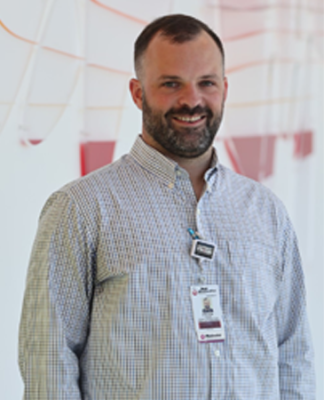
Steven Aktins, CHFM
Director of Facility Operations
Methodist LeBonheur Healthcare-University Campus
Memphis, Tennessee
How did you end up in this field?
I had a background in construction, which led to a maintenance director position at a long-term care skilled nursing facility. I fell in love with health care codes and have grown since then.
What do you like about your work?
I love having the ability to help others and have an impact on the community. It is very rewarding work to show up to a site that the community knows and expects to be neat and run smoothly. I love the challenges of daily life in health care and how each issue that comes up requires a constant flow of information to all members of our team.
What challenges do you face at work today?
We are challenged with replacing a workforce with years of knowledge and experience. This has to be a layered approach that gives our new team members the ability to learn and absorb as much experience and knowledge as possible prior to the retirement of our tenured staff.
Tell us about your experience with ASHE.
How did you get involved with ASHE?
I joined as a maintenance director in a LTC unit to learn and keep up with codes and gain certifications in the health care field.
What chapter experience do you have?
I attend ASHE’s annual conference each year, and in 2024 was awarded an Emerging Regional Leader Award by ASHE. This honor was highlighted by our local chapter, and since then I have been engaged by former chapter leaders to increase my engagement and volunteer work with ASHE.
How has ASHE helped your career?
ASHE has been a great resource for education and knowledge in the health care engineering profession. It has helped fuel my success thus far and challenged my status quo with constant education and opportunities.
Why should others in the field join ASHE?
If you aspire to excel in the health care field, ASHE is the vehicle for that journey. ASHE provides information, education, certifications, networking and all aspects of growth in the organization.
What are your professional goals?
To name a few: Earn a master's degree in health care administration, become a chief operating officer or vice president of engineering and facilities, and grow in the ASHE leadership realm.
What is your dream job?
I've learned not to answer this. There is always something more once you reach a certain level.
What advice would you give your younger self?
Be the hardest worker in the room and stay humble.
Who has made a significant influence on you?
Jason Lea — he was a facilities director at a local hospital and encouraged me to get into ASHE and learn and grow. His vision for my health care career helped me to see that I had a chance to do more with my skillset and work ethic.
Tell us about your time away from work.
What do you like to do in your spare time?
I have 5 children between ages 4 and 14. I love spending time with my family and serving in our church youth group.
What hobbies do you have?
Golf; all sports that my children play. I’m always coaching.
Tell us an interesting fact about you.
I only have 5 toes. I had a workplace safety incident eight years ago and lost a portion of my right foot. Therefore, I have a burning passion to push workplace safety.
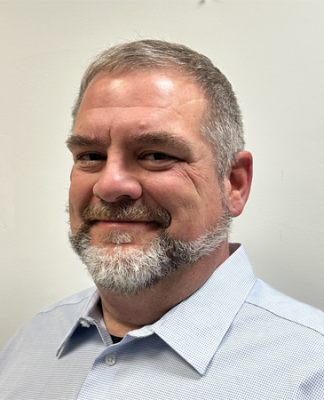
Darren Cheatham
Fire Door Specialist
Carilion Clinic
Roanoke, Virginia
How did you end up in this field?
I had worked for a major railroad company for about ten years. Due to a new business model, a substantial amount of the workforce was released, so I applied for a position at Carilion. I had never heard of firestopping or anything related to life safety before.
After about eight months of above-ceiling work, my manager asked if I would be interested in a door inspector position, which is now my current position.
What do you like about your work?
For starters, it’s never too late to find your calling. I love what I do! Once I got into life safety and realized how important it is, especially to health care, I couldn’t go into any building without seeing from that viewpoint.
Keeping our buildings, patients, staff and visitors safe in a true behind-the-scenes manner is extremely satisfying. I am always happy to talk to and educate someone on the importance of opening protectives. Sharing knowledge is very important to me.
What challenges do you face at work today?
The biggest challenge for me is taking care of around 3,000 inspectable doors across seven hospitals. Trying to keep doors in compliance is very difficult. Doors are the only part of passive fire protection that are normally in a constant state of movement.
Tell us about your experience with ASHE.
How did you get involved with ASHE?
I got involved with ASHE with the Shadow a Leader program. I am not a young professional, but I am new to health care.
What chapter experience do you have?
Carilion Clinic is very involved with our state chapter, the Virginia Society of Healthcare Engineers (VSHE). My senior director and manager are the chapter’s two most recent past presidents. I gave a door safety presentation last fall at the chapter’s conference, as well as VSHE district presentation.
How has ASHE helped your career?
While I am still new to ASHE, the time so far and allowed me to meet people from all over the country that I otherwise would have never met.
Why should others in the field join ASHE?
The knowledge you can gain is invaluable, not just from ASHE but the members as well. Everyone really cares and wants to help in this field.
What are your professional goals?
To name a few: Earn a master's degree in health care administration, become a chief operating officer or vice president of engineering and facilities, and grow in the ASHE leadership realm.
What is your dream job?
I've learned not to answer this. There is always something more once you reach a certain level.
What advice would you give your younger self?
Be the hardest worker in the room and stay humble.
Who has made a significant influence on you?
Because they have been so influential, I have two. The first is Shelly Cabaniss-Tullis, PE, fire and life safety manager at Carilion Clinic. She is the one who gave me a chance and since day one has taught me about all things code related. She has done everything to help me be the best I can be. She always tells me I am the subject matter expert.
The second is my senior director of environment of care, Philip Prescott, CLSS-HC, CHFM, CHSP, for the knowledge that he shares and for pushing me to obtain the CLSS-HC.
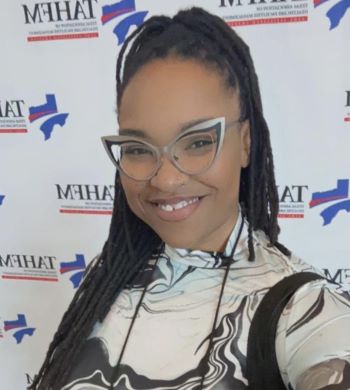 Jamesha Castillo, CHFM, CHSP, CHEP
Jamesha Castillo, CHFM, CHSP, CHEP
District Safety Specialist, Environment of Care and Life Safety
John Peter Smith Health Network
Fort Worth, TX
How did you end up in this field?
I started in facilities engineering as an administrative assistant to the director, Antonio “Tony” Suarez, at Arlington Memorial Hospital in Arlington, Texas. Tony was a walking book of knowledge and he had experiences in his career journey that motivated me to be the “best me” I could be.
About a year into my role, the materials manager for facilities at Arlington Memorial retired, and the task of ordering parts and supplies became part of my role. The engineers would request parts for me to order, from filters of many different dimensions to motors, fans, bulbs and tiny bolts. I also ordered hydrogen and CO2; scheduled grease trap cleaning, backflow preventer testing, boiler testing and so much more.
The more I became involved with the operations side of facilities, the more I wanted to learn about the mechanical side. It was very invigorating to come to work every day and learn why and how machines worked to keep the facility safe and functional for optimal patient care. Having worked in health care in many other clerical roles for 13 years prior to my experience in facilities engineering, I had never felt so involved and purposeful. It was in that first year that I realized my calling to be a part of the bigger picture in health care.
The combination of facilities engineering and safety truly is the heart of health care. An organization cannot function without facilities engineering and safety. I am proud to be a part of the “heart” team and look forward to the innovation and evolution of health care engineering.
What do you like about your work?
I enjoy being able to provide insight into how facilities management and safety management are partners as the heart of the organization. I also enjoy providing education to staff of the “why” behind safety and facilities management.
What challenges do you face at work today?
The only real challenge I face in my current role is finding enough time to work to reach the masses. What I mean by this is that health care organizations have to be a team on all levels to provide the best care for patients, families AND staff. Communication and education are the key to success, and as a district safety specialist, I make it a personal goal to reach and teach safety to all staff. It is important we are all working together, including clinical, facilities and support staff.
Tell us about your experience with ASHE.
How did you get involved with ASHE?
While I was working under the Tony’s leadership, he received the honor of becoming the president-elect of ASHE. Tony mentioned in our first staff meeting that he had educational resources and information available for anyone who may be interested through ASHE and the Texas Association of Healthcare Facilities Management (TAHFM). After doing some independent research, I decided becoming a part of ASHE would provide more educational opportunities for me in the field of health care engineering. Without hesitation, Tony introduced me to ASHE, and I have been a member since 2020.
How has ASHE helped your career?
Being an ASHE member has provided me with excellent resources for education and advancement, as well as important updates from The Joint Commission. But my favorite part of ASHE is the networking!
Why should others in the field join ASHE?
Being an ASHE member allows access to so many resources, including courses and nationwide updates relevant to health care engineering and safety. ASHE also gives new leaders guidance in the field including career opportunities, technology updates, The Joint Commission updates and networking opportunities. As a member, I can truly say that ASHE is a big family dedicated to improving the health care engineering profession.
Tell us about your professional journey.
What are some of your professional goals?
I want to complete my MBA and advance my career by becoming a leader in facilities engineering. I also plan to become very active in the TAHFM on the education committee, and one day earn SASHE status.
What would your dream job be?
My dream job would be to lead a productive and innovative team that provides enhancement in facilities engineering.
What advice would you give your younger self?
No matter what, don't give up. You never know where your heart will lead you.
Tell us about your time away from work.
What do you like to do in your spare time?
Create dance choreography with my daughter. The art of dance has been a part of my life for over 20 years.
Tell us about one interesting thing on your “bucket list”.
I’d like to purchase a few tiny house kits and have them built in my favorite states in the U.S., then use them as secret vacation spots.
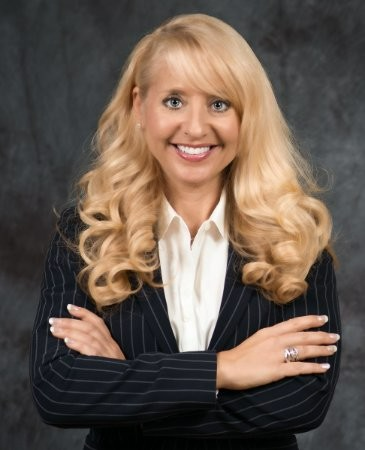 Wendy Peterson
Wendy Peterson
Energy/Sustainability Manager
Vice President, Strategic Growth
Michuda Construction
Tinley Park, IL
How did you end up in this field?
While working for a contract furniture dealer, I was tasked with growing the company’s health care business and focusing on that market. I grew to love the unique project scope and challenges of health care. We had to deal with end users, architects, and real estate and construction companies. I have always had an interest in construction, so blending the two was a natural progression.
What do you like about your work?
I love the 24/7 hustle and bustle of health care and knowing you are creating an environment that can better the lives of patients and the staff.
What challenges do you face at work today?
The lingering post-pandemic supply chain issues, with long lead times on crucial items, have been a challenge.
Tell us about your experience with ASHE.
How did you get involved with ASHE?
I became involved with ASHE through our local chapter, which really opened my eyes to the depth and breadth of ASHE as a whole.
Tell us about any experience with your local Chapter.
I was introduced to the Healthcare Engineers Society of Northern Illinois (HESNI) by one of my health care clients who was involved in that chapter. He knew I was looking to get more involved in the market and he knew exactly how to make that happen. Eventually, I was nominated to the HESNI Board of Directors. I still hold that same position today.
How has ASHE helped your career?
The amount of exposure, networking, camaraderie and trust that ASHE builds is priceless. I have met so many outstanding connections through ASHE and my local chapter. The friendships and connections I have made help me every single day! I return the favor every chance I get.
Why should others in the field join ASHE?
There is value in the educational sessions and vendor support, but even greater than that are the lessons and guidance your contacts will readily teach you. We all learn from each other’s mistakes and triumphs. You become a family, and that family will continue to grow across the country.
Tell us about your professional journey.
What are some of your professional goals?
To build big, but leave a small environmental footprint and to develop solid succession plans for both the local chapter and health care entities.
What would your dream job be?
My dream job would actually be more outdoorsy as a landscape architect, but that could still be tied back to health care by creating tranquility gardens and fresh-air respite spaces for patient, staff and visitors.
What advice would you give your younger self?
Always surround yourself with people who lift you up. Seek the people that will provide mentorship and friendship, so that your successes are their successes, too.
Tell us about the person who influenced you most in your career.
There are two people, Saliba Kokaly of Swedish Hospital and Vince Shanahan of Kleen Air, who brought me into the local chapter and have stayed involved in my career progression. They have been mentors, clients and friends — the trifecta!
Tell us about your time away from work.
What do you like to do in your spare time?
Endurance sports, traveling, being outdoors, learning new languages and helping others.
Tell us about your hobbies.
Triathlons, always looking for the next best adventure and adrenaline rush, and organizing and working at volunteer events.
Tell us one interesting fact about you.
I grew up on a 220-acre horse ranch. My childhood was spent at quarter horse shows. We trained, boarded, had breeding services and raised quite a few champion quarter horses that participated in American Quarter Horse Association shows.
Tell us about one interesting thing on your “bucket list”.
To spend a month traveling all over Italy... and who knows... maybe stay there, marry Brad Pitt and live happily ever after! He does love architecture, so perhaps we can design and build a hospital together. This is my humorous side talking, but perhaps we can get Brad to notice this publication!
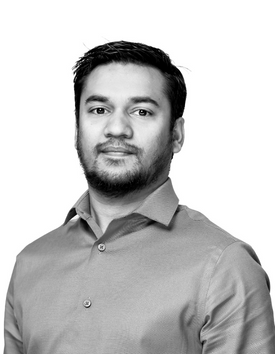 Biraj Bhandari, PE, CEM
Biraj Bhandari, PE, CEM
Energy/Sustainability Manager
Energy Engineer
EMA Engineering and Consulting, Inc.
How did you end up in this field?
I have a passion for efficient buildings, especially health care and educational facilities.
What do you like about your work?
I like the opportunity to make an impact in the lives of people.
What challenges do you face at work today?
Two challenges are using data to make informed decisions, and having a holistic knowledge of code and compliance in the vast areas of building science, design, safety, administration, construction, etc.
Tell us about your experience with ASHE.
How did you get involved with ASHE?
I got involved with ASHE during my search for a community where I can engage, learn and contribute towards health care engineering.
How has ASHE helped your career?
By providing valuable insights on projects and related information on various portfolio healthcare facilities.
Tell us about your professional journey.
What are some of your professional goals?
To execute and manage facilities design, operation and data-analytics based solutions in health care, education, data centers, etc., in a human-centric, cost-effective, energy-efficient and sustainable way.
Tell us about your time away from work.
What do you like to do in your spare time?
I work on drones, robotics and data analytics-based product development.
Tell us about one interesting thing on your “bucket list”.
One of the things on my bucket list is to go scuba diving in Silfra Fissure in Iceland.
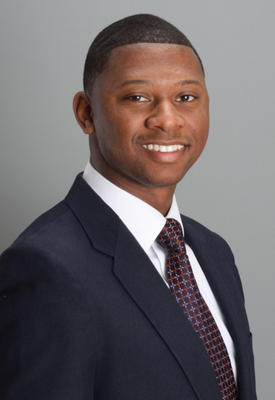 Reginald Warren CHFM, CHSP, CHC, CHESP, CHOP-A
Reginald Warren CHFM, CHSP, CHC, CHESP, CHOP-A
Assistant Vice President of Planning, Design & Construction
Atrium Health
Charlotte, NC
How did you end up in this field?
I ended up choosing to work in the health care construction field as a result of being exposed to it by a professor early on while in college.
What do you like about your work?
One of the things that I enjoy the most about my work is being on a team that improves the quality of the physical environment supporting the treatment of patients.
What challenges do you face at work today?
The shortage of skilled labor within health care construction and the inflation of building material costs are a couple of the biggest challenges we’re facing today.
Tell us about your experience with ASHE.
How did you get involved with ASHE?
The first boss that I had after graduating from college recommended that I become a member because of the knowledge that I would gain by being associated with the organization. Years later, I was fortunate enough to serve on one of ASHE’s task forces.
Tell us about your experience with your local chapter.
I served on the Virginia Society of Healthcare Engineers Board of Directors as the Annual Conference Chairperson from May 2016-May 2017, and the Young Professionals Group Chairperson from May 2017-May 2018.
How has ASHE helped your career?
ASHE has helped my career by providing technical information, preparation for relevant certifications, a platform to strengthen my network, and a way to give back to the field through service.
Why should others in the field join ASHE?
The exposure to fellow industry professionals, resources, and conferences through membership is an immeasurable value to new industry professionals, seasoned ones, and anyone in between.
Tell us about your professional journey.
What are some of your professional goals?
Some of my professional goals include continuing to grow and be successful in my current role, becoming a Certified Construction Manager and Certified Life Safety Specialist for Health Care Facility Managers, completing my master’s in engineering degree, and volunteering for a few individual membership organizations.
What would your dream job be?
I am actually working in my dream job now.
What advice would you give your younger self?
The advice that I would give my younger self would be to try to learn as much as possible but understand that you don’t have to know everything. While technical skills are needed within this industry, soft skills still need to be refined in order to reach full potential. Also, to be patient and stay the course.
Tell us about a person who influenced you most in your career.
He doesn’t know it, but it was the first director of construction that I worked with while in college. He was the first person to recommend that I get familiar with The Life Safety Code and The Joint Commission.
Tell us about your time away from work.
What do you like to do in your spare time?
I like to spend time with my family, relax, travel, watch TV/sports and play the piano.
What are some of your hobbies?
I like to watch movies, visit museums, dine in restaurants and work out.
Tell us one interesting fact about you.
I have served in the Marine Corps Reserve, North Carolina Army National Guard and Army Reserve.
Tell us about one interesting thing on your “bucket list”.
One day, I would like to be a contestant on a televised game show and win some prizes.
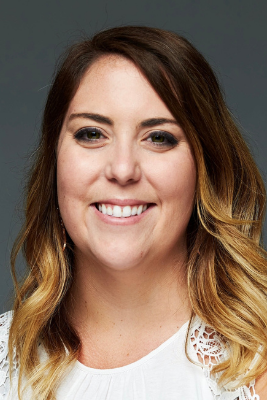 Taylor VaughnMBA, CHFM, CLSS-HC
Taylor VaughnMBA, CHFM, CLSS-HC
Facility Manager
Children’s Health
Dallas, TX
How did you end up in this field?
I fell into an administrative assistant role in the engineering department at Children’s after college. I had no idea what health care engineering was, but I ended up loving the work and the environment and have moved my way up from there.
What do you like about your work?
Not only does my work help to make life better for children, I love the general camaraderie in this profession. Everyone is willing to share their knowledge and experience without fear of competition. We’re all working for the greater good of our patients.
What challenges do you face at work today?
Like most hospitals, we’re facing an aging workforce and the potential for an enormous loss of knowledge and experience. We’re also working to become much more proactive than reactive with emergency events.
Tell us about your experience with ASHE.
How did you get involved with ASHE?
I was put in touch with ASHE in my administrative role. We had an upcoming survey, and I was tasked with getting our documentation ready. The wealth of resources available was so reassuring.
Tell us about your experience with your local chapter.
I am very proud of the Texas Association of Healthcare Facilities Management. I am on the Board of Directors representing the Dallas/Fort Worth metroplex and on the Young Professionals Task Force. We just implemented a statewide mentorship program that I am so excited about!
How has ASHE helped your career?
The resources that ASHE provides have been so beneficial. I especially love the videos of past Annual Conference presentations and the ASHE online community. Anytime I have posted a question, I have received answers and the support I needed.
Why should others in the field join ASHE?
The resources and the people in ASHE make it worth it. Any problem you’re having, someone else has already had and ASHE likely has a tool to help you through it.
Tell us about your professional journey
What are some of your professional goals?
I’m very passionate about leading the facilities management industry; I like to do things that no one else is doing, and then help other hospitals to implement those programs and processes that I started.
What would your dream job be?
Growing up I wanted to be a United States senator, but a career in facilities management at a pediatric hospital has been much more rewarding.
What advice would you give your younger self?
Keep your mind open and say yes to any opportunities that come your way. I was hesitant to accept the administrative job at Children’s, but I’m so glad I did because I found my passion and purpose in life.
Tell us about a person who influenced you most in your career.
The person who originally hired me into Children’s and took a chance on someone with no experience is my biggest influence. I still reach out to them today for career advice and general support.
Tell us about your time away from work.
What do you like to do in your spare time?
I love Dallas, and I have a Dallas restaurant-themed Instagram!
What are some of your hobbies?
I love deep-sea fishing! I try to make a trip to the gulf every year. I caught a state-record black snapper off the coast of Orange Beach, Ala., a few years ago!
Tell us one interesting fact about you.
I am a sixth-generation Texan!
Tell us about one interesting thing on your “bucket list”.
Give a TED Talk!
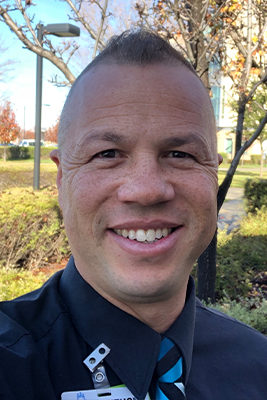 Anthony Crawford
Anthony Crawford
Safety Operations Practice Leader
Kaiser Permanente Vacaville Medical Center
Vacaville, CA
How did you end up in this field?
I came to the health care field from the fire/rescue industry. I've always been rooted in public safety.
What do you like about your work?
My role never gets stagnant or takes on too much of the same thing for too long (except COVID response). It's always changing as I get to provide leadership and direction to all facets of the Medical Center.
What challenges do you face at work today?
Like most of us, more and more is expected without additional resources. I focus on using every bit of my creativity and out-of-the box thinking in order to get maximum outcome in all I do. Getting input and participation from passionate front-line staff has been part of my bag of tricks over the years.
How did you get involved with ASHE?
I started participating at the ASHE Annual Conference in 2011 in an effort to grow as a subject matter expert in survey readiness. I found great value and my participation grew from there, and I've been participating ever since.
Tell us about your experience with your local chapter.
Linking into ASHE Region 9 (CSHE) has magnified my experience. This is where I've really gained the relationships and established invaluable connections that meet my facility needs regularly. I've even stepped up my participation over the years as an elected official, and I'm currently the secretary for the state chapter and a local president with CSHE.
How has ASHE helped your career?
Being part of ASHE and CSHE has added clout and value to my leadership. Coming into any situation with my CHFM designation automatically “sets the table” for my skillset and gives me the backing of a massive network of health care engineering leaders.
Why should others in the field join ASHE?
Being part of such a robust network will give any new facilities personnel amazing personal contacts, website resources, and live opportunities for growth and education. Like me, an experienced leader can use their ASHE experiences as a resume builder for advancement.
What are your professional goals?
I look to earn SASHE status followed by FASHE status within the organization.
What is your dream job?
My dream job is to be a facilities administrator at a local hospital or even regional program director for safety/emergency management.
What advice would you give your younger self?
I would tell myself to start participating with ASHE early in my career! The earlier the better.
Tell us about a person who influenced you most in your career.
Dave Lockhart has been an influencer and mentor of mine for many years. He has taken the full journey through ASHE and CSHE, and has been able to guide me through a path of succession. I’ve had the pleasure of watching how Dave has left his imprint on the world of health care engineering (e.g., RCM, Energy to Care, and beyond). Not only has he influenced me, but I know he’s had a profound effect on many others.
What do you like to do in your spare time?
I love spending time with my family.
What are some of your hobbies?
I love wine tasting, hot dogs, Sacramento Kings, Disneyland and the Star Wars series.
Tell us one interesting fact about you.
Prior to entering health care, I was a professional bowler and firefighter/paramedic.
Tell us about one interesting thing on your “bucket list”.
Visiting Club 33 at Disneyland is on my bucket list!
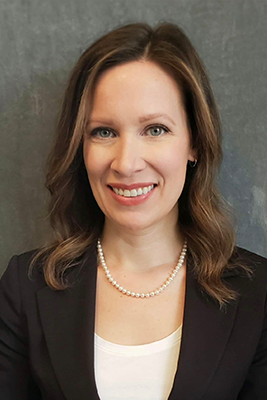 Kathryn Quinn
Kathryn Quinn
Safety Officer
Saint Alphonsus Health System
Boise, ID
How did you end up in this field?
What I call a very fortunate accident – I landed in the field of health care facilities management through my background in health care emergency management. My experience and interest in regional health care emergency management was a good fit for the related areas within the day-to-day operations of the hospital — regulatory compliance, developing continuity of operations and coordinating multidisciplinary teams to navigate failures of essential services.
What do you like about your work?
I enjoy the dynamic nature of the work and problem-solving with other subject matter experts on complex issues. There is also meaningful purpose in this field — from supporting safe and quality patient care to more broadly ensuring reliability of patient care services for a community.
What are some of the new challenges in your field?
Like everyone is experiencing, the challenge of today is how to incorporate the variability of COVID situations and impacts into the normal operations of the facility.
How has your involvement in ASHE and your chapter helped your career?
I am lucky to have been mentored by a few ASHE leaders from day one of being on the job in a health care facility. I joined my state chapter (Idaho Society of Healthcare Engineering, ISHE) about the same time as ASHE. While ISHE is a small chapter by numbers, we have significant capacity among our membership, including several past ASHE presidents. Their leadership and engagement with the state chapter and new hires (like I was) was and is a significant advantage to those working in this field. Through their guidance, I have held several roles on the ISHE Board, most recently that of past president. It is an understatement that health care facility management is a complex world, but the networks of both ASHE and ISHE create significant connections to a diverse field of experts. As I progress in my career, I hope to carry on this model for others.
What are some of your professional goals?
Being elected the Region 10 Advisory Board member is a significant professional goal for me. I am grateful for the opportunity to serve in this role. This coming year, I plan to apply for SASHE and obtain the CHEP certification.
What do you like doing in your spare time?
The secret is out about Idaho — it is a great place for anyone who enjoys the outdoors. Depending on the season, I like to snowshoe, trail run and kayak. I am currently training for a 50K trail race this spring.
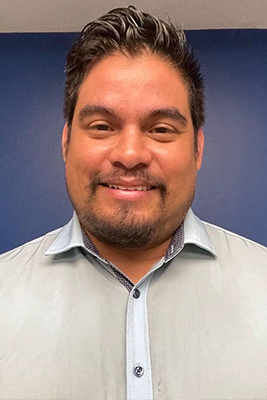 Alexander Sesack
Alexander Sesack
Director of Facilities Management St.
Barnabas Health System
How did you end up in this field?
I went to college to become a marine engineer with a concentration in designing power plants for ships. I started my family right after college, so I went into building commissioning and operations in schools, hospitals, office buildings and hotels. A few years later, I was recruited to become an engineering supervisor at a cogeneration plant with the capability of producing over 15 megawatts at a large hospital. I've been in hospitals for 10 years now, having operated a cogeneration plant through Hurricane Sandy, designed and built the HVAC system for an Ebola unit, improved cooling tower and domestic water systems through the NYC Legionella outbreak and constructed 12 airborne infection isolation rooms in response to COVID. It's been an exciting career.
What do you like about your work?
It's extremely rewarding knowing that what I do helps health care. Every project that involves improving indoor air quality with fan upgrades, changing an operating room floor for increased durability and upgrading with LED lighting to reduce electrical consumption helps hospital operations in one way or another.
What are some of the new challenges in your field?
They're certainly not new, but my main focus today is improving indoor air quality and decreasing energy demand. The challenging and necessary part is getting staff on board with facility improvements. We've begun training our HVAC team to understand MERV ratings and our electric shop to calculate electrical energy savings. A properly trained team improves itself with knowledge and each team member understanding their work’s importance.
What advice would you give your younger self?
Take more opportunities in continuing education. I missed the opportunity to take my Fundamentals of Engineering exam when I graduated college and then my Professional Engineer exam later on in my career. I also should've tried harder at my master’s degree. Younger self, don't give up on any opportunities to improve your future.
Who influenced you the most in your career?
When I first entered management, I had a director for five years that taught me so much and really influenced who I am today. He didn't teach me anything about engineering but he taught me everything about being a manager and a good person. He knew that I was educated and hardworking so I'd grow into a great engineer by myself. He taught me how to treat people, when to lead and when to be led, when to talk and when to listen. His lessons were invaluable.
What are some of your goals working in the field?
I'd certainly love a second shot at my master’s degree. I'm coming to a point in my career where I can share my knowledge with younger engineers in my field. A part-time teaching position doesn't seem too far-fetched either.
What would your dream job be?
I'd like to stay on my current path. I've learned so much about health care and feel valuable in my current role. If it leads to managing larger departments, I'm up for the challenge. It's a rewarding career, and I love what I do.
What is a fun fact about you?
I spent a summer skydiving. I must've jumped at least 50 times.
What things are on your bucket list?
One of my favorite things to do is traveling. I'd love to travel to every country at least once. I'm up to 26 so I have a lot of traveling ahead of me.
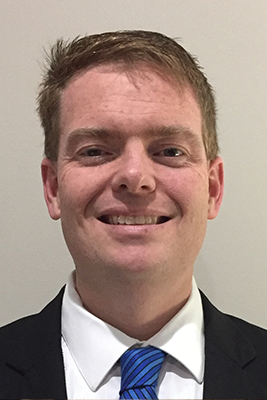 Jason Lea
Jason Lea
Director of Facility Operations
North Mississippi Medical Center
How did you end up in this field?
It was totally random. I received a call to interview at a university as an engineer. I had listed Autocad on my resume, which was the only reason I was contacted. I was fresh out of college and did not know of the facilities sector nor why they would need an engineer.
What do you like about your work?
I love the new challenges presented every day. Health care is never boring.
What are some of the new challenges in your field?
Budget constraints and developing new staff are challenging. Financial restrictions are increasing daily. The amount of skilled technicians retiring is incomprehensible. No longer can I count on someone to know what to do. I have to ensure they are trained and can adapt to each situation.
What do you like doing in your spare time?
I have three daughters, so what is spare time? We cheer or play soccer or volleyball.
Interesting hobbies?
I like tinkering either around the house or with old cars.
What advice would you give your younger self?
Slow down and enjoy life. The work will be there tomorrow.
Who influenced you the most in your career?
I had two great leaders profoundly impact my career. The first was an HVAC shop supervisor who taught me about mechanical rounds and how the sights and sounds of rooms will tell you what is needed. I still use my senses to tell when something isn’t right. Next, my first health care director really made an impact. He had been in health care for many years at several large organizations and had a great perspective. He put me through the ringer, and somehow I survived. He saw something in me and wanted me to stay in the field. We still stay in touch, 15 years later.
What are some of your goals working the field?
I want to help others develop into leaders. I try to make part of my day educational. I stay current on as much as I can, and I share that knowledge. I make a point to leave every location I work better than it was when I arrived. Hopefully I made enough impact for improvements to be sustainable.
What would your dream job be?
As far as a facility, I would like to be part of a university health care system to take advantage of the educational opportunities. At the same time, I have a great team at my current facility, so who could ask for more?
What is a fun fact about you?
I might hold a guitar from time to time.
What things are on your bucket list?
I like to travel, so anything interesting that pops up. I would like to visit most of the national parks and all 50 states.
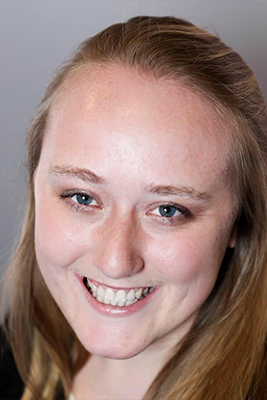 Rachel Hutze
Rachel Hutze
Facility Supervisor
AMITA HEALTH Resurrection Medical Center
How did you end up in this field?
I was an industrial engineering technology (IET) major at Purdue University but was also involved in ASHRAE. I happened to go on a tour of a hospital in college and became very interested in all the behind-the-scenes work that it takes to make a hospital run. I got involved in construction management classes dealing with hospital design and with ASHE. ASHE gave me many great opportunities to get involved in the field as a student: attending conferences, helping on a task force and meeting industry people.
What do you like about your work?
My favorite part of the job is the variety in what I get to do every day from managing the FMOS books, helping manage the day-to-day operations, and interacting with many different people. I also enjoy working with the team at Resurrection; from addressing a natural gas outage in the fall to preforming snow removal when almost a foot of snow fell, they always rise to the challenge.
What do you like doing in your spare time?
I enjoy exploring Chicago suburbs, going to workout classes and volunteering at a food pantry.
Do you have any interesting hobbies?
I enjoy photography. I like taking pictures on my own for fun, but have also taken pictures of engagements, at a wedding and for senior photos.
What advice would you give your younger self?
I would get involved in ASHE and say yes to any opportunity to get involved.
Who influenced you the most in your career?
I have been lucky and had great mentors. Just to name one, Brad Benhart, a construction management professor at Purdue, was particularly helpful to me. He encouraged me to apply my IET degree to hospital facilities work even though I didn't have a construction background.
What are some of your goals working the field?
I plan to work towards achieving my CHFM in the next few years. I need to learn about all the equipment in a hospital so I can achieve that goal.
What would your dream job be?
I would like to be a director of facilities.
What is a fun fact about you?
I was All-Conference player on my high school soccer team that won a Hoosier Conference Championship against the reigning state champs.
What things are on your bucket list?
I would like to go skydiving.
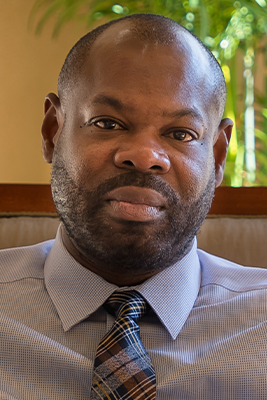 Rodney Eason
Rodney Eason
Executive Director Facilities Management
Children’s National Hospital
How did you end up in this field?
With my educational background in building construction and architecture, I was fortunate enough to be hired with no health care experience with EMCOR at one of their first health care facilities, the 633rd Medical Group, Langley Air Force Base. My original facilities experience stemmed from malls and shopping centers. The transition was scary and challenging, but I had great support from my military cohort, employers and family.
What do you like about your work?
I enjoy being able to make a difference in children's lives through my passion. As a child I always enjoyed building things. Now I get to oversee a huge facility and make sure it is in the best condition. By making sure that Children’s National Hospital is a safe and welcoming environment through its facilities, I know that children are receiving the best care possible.
Do you have any interesting hobbies?
As everyone always says, traveling, but due to COVID that was not possible in 2020. Hopefully I will make up for it with the money I have saved and go back to Zambia for a long holiday. Living here in D.C., I enjoy trying different restaurants, watching Netflix, going to rooftop bars. I’m also enjoying seeing my amazing daughter graduate from the University of Tennessee in Knoxville and become an independent woman.
Who influenced you the most in your career?
Wow, I had a lot of influential individuals in my career. I would say the most influential person to get me to where I am now would be the contracting officer representative at the Air Force medical hospital where I first worked. He worked me to the bone, assigning several duties for me to accomplish. These duties consisted of looking at facilities outside of regular maintenance and focusing on regulatory and compliance. Kudos T.C.
What would your dream job be?
A vice president of a newly constructed 100-bed Caribbean hospital.
What is a fun fact about you?
If I could live anywhere in the world, it would be in Jamaica.
What things are on your bucket list?
Things I hope to check off on my bucket list are visiting Niagara Falls and traveling to Italy. Niagara Falls has always seemed like a beautiful place to visit and take in nature. I would also love to visit Italy with my daughter and see the beautiful architecture and experience authentic food.
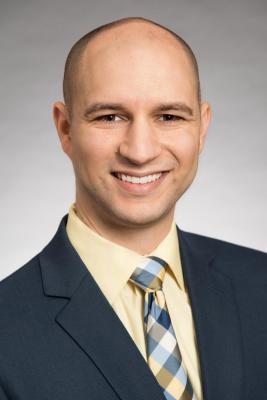 Jacob McCall
Jacob McCall
Director of Engineering Services
Memorial Hermann Northeast
How did you end up in this field?
After graduating from Texas A&M, I took a role as a maintenance mechanic at Memorial Hermann SW. My father worked facilities for a local higher education school in Houston. I was familiar with the work and really enjoyed what he did, so I wanted to pursue a career in facilities as well.
What do you like about your work?
I like that we need to know a little bit about a lot of things and that I am involved with a ton of different roles throughout the hospital. I like that every day is something different, and when something happens I like having to think on my feet to get to the root of the issue and figure out the best way to get back to full or partial operations as quickly as possible.
What are some of the new challenges in your field?
Currently there are a lot of challenges with lead times. Things that we would normally receive in a couple weeks are taking several months. Another challenge is trying to figure out how to return to more normal operations seeing the steady decline in COVID cases.
What do you like doing in your spare time?
Spending time with my family, playing basketball, watching TV.
Interesting hobbies?
I like playing cards; I always have a deck on my desk to fiddle with. I also like puzzle boxes, and other types of puzzles.
What advice would you give your younger self?
That is a tough question; I feel I have been very fortunate in my progression. I guess I would stress getting commitments documented on paper or in email.
Who influenced you the most in your career?
My father had a HUGE impact on my career. I attribute a lot of my curiosity and desire to understand to him.
What are some of your career goals while working in the field?
One of my goals that has been consistent from the beginning is to always be learning something. Never stay stagnant or complacent.
What would your dream job be?
Honestly, I am not sure what my dream job would be. I love what I do right now, and I do not see that changing anytime soon.
What is a fun fact about you?
I do not know if this is a fun fact, but I think it is pretty cool: I am now the director of engineering at the hospital wherel I was born.
What things are on your bucket list?
I haven’t really focused on a bucket list. Right now my priorities are spending time with my family, doing my job well and enjoying life. I have always been interested in learning to fly, but I do not know if I am serious enough about that to add it to a bucket list (and I’m not sure how my wife would feel with this on my bucket list…).
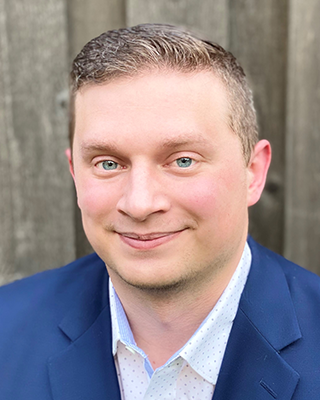 Benjamin T. Leutze CHFM, CHC
Benjamin T. Leutze CHFM, CHC
Assistant Director of Facilities
Aurora University
How did you end up in this field?
I was working full time as a student in the central heating plant at Brigham Young University (BYU) racking coal ash out of the boilers with another student in the BYU facilities and property management major. He encouraged me to apply to the major that fall and pursue a career in facilities management.
What do you like about your work?
I love the problem-solving required every day. Facilities management is always changing and adapting to opportunities that arise during the course of operations.
What are some of the new challenges in your field?
The biggest challenge (or opportunity as I like to call it) is the need to change the culture of negativity. Many problems can be solved by changing our attitudes towards how we interact with colleagues and partners. The pandemic has created a unique opportunity to highlight the important work that we do but if we continue to communicate as we always have, nothing will change.
What do you like doing in your spare time?
I am a fanatic for cars. I especially love concept cars and watching car reveals. I think the innovation to push the boundary of what is possible is something we could all learn from.
What advice would you give your younger self?
Don’t let people’s opinions sway your drive. So many peers will try to tell you “it isn’t that simple” or “this is the way things are and there is nothing you can do to change that”. Do not listen. Continue to hope and dream.
Who influenced you the most in your career?
The two individuals that have influenced my career the most up to this point are John Ellis with Intermountain Healthcare and Clayton Smith with Children’s Health. John has been a mentor since the very early stages of my career and created opportunities to learn from folks within his organization while I was in school to be able to apply what I was learning to real life. Clayton Smith has been a great sounding board and supportive while I was a young professional within the facilities management field. I have learned a lot from Clayton while writing articles together and pursuing new and interesting opportunities in my career.
What are some of your goals working the field?
I have the goal to return to the health care facilities management field. I have always been drawn to the most challenging opportunities where I can stretch and grow both personally and professionally.
What would your dream job be?
My dream job is to create a network of health care internship and apprentice programs across the country to grow the awareness of the healthcare facilities management field and train the next generations of health care facility managers.
What is a fun fact about you?
I can speak and/or understand six different Filipino languages.
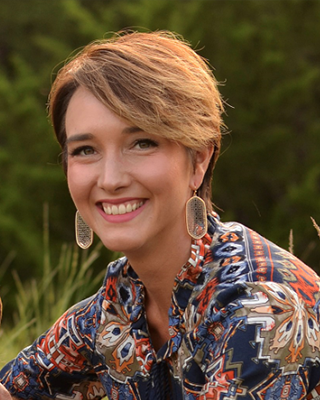 Melissa Kyle CHFM, CHC, CHSP, CHEP, LSSYB
Melissa Kyle CHFM, CHC, CHSP, CHEP, LSSYB
Executive Director, Facilities Engineering
JPS Health Network
How did you end up in this field?
- I started full time at an entry-level safety position while finishing up my senior year in college. My position focused on gaining knowledge and experience within the regulatory realm of environment of care, life safety and emergency management. I learned how to evaluate and apply the regulatory aspects of the field to the operations. In the process, I spent a significant amount of time learning operations not only on the safety side but also within engineering.
I quickly learned my passion and purpose within health care was engineering operations and its contribution to the overall improvement of patient safety.
Who influenced you the most in your career?
- I was blessed to have some fantastic leaders and mentors throughout my career that molded me into the leader I am today. My first leader, Lorrie Elizarraraz, was pivotal in my initial growth and success. She taught me the importance of our work, importance of striving to place patient safety first, and understanding of an immense amount of code requirements. Call it lucky, but I was also very fortunate to have the mentorship from my husband who is a very successful leader in facilities engineering. He taught me so much about engineering operations including understanding of equipment and systems and how to effectively manage an engineering team.
Tell us how you developed professionally.
- Over the course of my career, I have been fortunate to serve as both a safety officer and facilities director before successfully promoting up as an executive over facilities operations for a large health network. My regulatory background also leveraged opportunities for me to complete mock surveys for a health system in the Dallas/Fort Worth area as they prepared for accreditation surveys.
What advice would you give your younger self?
- There are several pieces of advice I would give my younger self or anyone who is starting their career in this field. First, don’t be afraid of making mistakes and don’t be consumed by the fear of potential failure. Mistakes foster opportunities for further growth. If you are not willing to put yourself out there and take chances to learn, then you are hindering your success. There were many concepts to operations (including equipment functionality, code applicability, etc.) that I did not know but had to learn. Asking questions is key! Knowledge is truly power to success. Second, leverage the knowledge and experience of those who are seasoned in the field. They can provide a wealth of information to guide you. I can think of many who I have admired in my career and value their feedback and experiences. Third, covet important relationships. While it is important to build relationships, it is vital to maintain them. We are successful by setting best practices and sharing those ideas among each other. There are so many brilliant, forward-thinking individuals in this field. Remember the times you received much needed assistance and pay it forward. Learn, teach, educate and grow!
Tell us about your time away from work.
- My time away from work is focused on my family. My family is everything to me. I have been married to my husband Ricky for nine years and we have a six-year-old daughter in Kindergarten and an eight-year-old son in second grade. Our son plays on a 7U tournament baseball team through the EDGE baseball organization and our daughter does gymnastics. Traveling for baseball has provided many opportunities and experiences as a family. My husband and I enjoy watching our kids grow and excelling in their love for baseball and gymnastics. In addition to these activities, I thoroughly enjoy time outdoors, fishing and hunting with my husband along with spending time at our family farm in Texas.
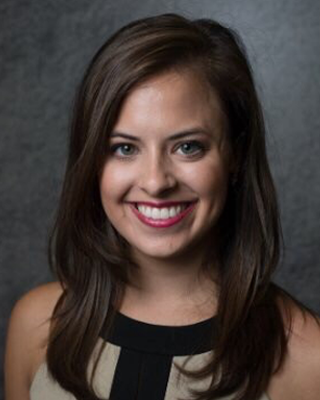 Jordan Northcutt
Jordan Northcutt
Facilities Manager
Baptist Health Medical Center
How did you end up in this field?
- Prior to the summer of 2013, my industrial engineering professor emailed a flyer to his students promoting the ASHE Internship Program. At the time, I had no clue that health care engineering even existed or what those professionals were responsible for, but the internship was paid and covered housing so I thought “what the heck, I’ll apply.” Lo and behold, I was accepted into the internship program. From my first day on, the passion I saw within the staff that I worked for was contagious. Within the first week of working in the hospital, I was completely bought in.
What do you like about your work?
- My father has been a hospital laboratory director for almost 40 years. Growing up, I was always fascinated by the science behind the work that he does. However, I quickly realized that blood and guts are not my thing. Being a health care engineer allows me the opportunity to work directly in a health care setting, without having to stick anyone with a needle. The feeling of giving back to the community is what drives my passion for my work. I consider myself a part of the patient care team. Even if most of the work we do goes unnoticed and underappreciated , I feel a strong sense of purpose by keeping the building operating and safe for our patients and staff.
What do you like doing in your spare time?
- Even though I spend my daytime hours as an empowered #girlboss, my interests outside of work include dancing, baking and gardening (in typical southern lady fashion). Especially over the last year, working in health care can be physically and mentally exhausting. When I get home from work, there is nothing more soothing than popping in my earbuds and escaping into a mindless, methodical task. Mental getaways like these allow me to clear my head and recharge to go again the next day.
Who influenced you the most in your career?
- This is cliché, but my mom and dad have been the driving force behind pushing my career since long before I was in the workforce. I am the youngest and only female of their four children. My parents have always been the biggest supporters and advocates for all four of us, but at times they would push me a tad harder than my brothers. Deep down I think they realized early on that I would face more challenges, being a woman in STEM, than my brothers. They’ve never stopped pushing me to apply for that job, attend that conference, run for that office, etc. I would not have the natural drive to progress this quickly in my career if not for their encouragement. Currently, another person that is keeping me going is my doctor, aka my fiancé, Blake. In any job, it is so easy to pigeon-hole into specific ways of thinking. So often we find ourselves thinking, “If only the clinicians would do [xyz], my job would be a lot easier.” Being able to bounce ideas off of someone on the other side of this world helps me see issues in a new light and come to creative solutions, in both operations and design, that I otherwise may not have concluded on my own. And on his side, I’m happy to say that I have successfully converted at least one physician to submit his own work orders, and do it correctly.
What are some of your goals working the field?
- I have no goals — but let me clarify. I see goals as being the end of a straight road. I want to advance my career with all possibilities on the table. I joke with every boss I’ve had that don’t want to take that person’s job, I want to take their boss’s job. I never would have dreamed that after only seven years in the workforce I would already be a facilities manager within a large hospital system, and I hope to continue advancing my career as far as possible. However, my dream job, height permitting, would be to become a Radio City Rockette.
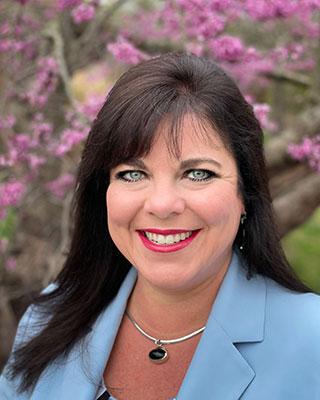 Renee Jacobs
Renee Jacobs
Business Development Manager
Healthcare, Distech Controls
Tell us about your work.
How did you end up in this field?
Starting my career in construction project management, my goal was to work for a general contractor. At the time I graduated, general contractors were leery of hiring women. It was extremely difficult to find a job. Fortunately, a general contractor in Kansas City hired me to manage the Lied Center project for the University of Kansas. Additionally, they assigned me to manage some health care projects. The complexity of the health care projects was exciting and challenging at the same time.
Shortly after completing the Lied Center project, Menorah Medical Center hired me to manage a new greenfield replacement hospital project. I spent a total of six years on-site managing the entire project from start to finish while learning how to operate the hospital which I had helped build.
Following that project, my favorite project was a new heart hospital and energy center for Saint Luke’s Health System. While managing the construction project, I restructured facilities management and brought it back in-house from an outsourced contract. We also piloted a modified integrated project delivery project, which brought the clinical leadership and construction team together in an elevated capacity. It was my most successful project, attributable to the extensive collaboration.
Since then, I have continued my passion for health care construction and facilities through working in various capacities. Today, it is rewarding to support health care facilities by bringing solutions for better, more efficient operations while leading the health care vertical market for Distech Controls.
What do you like about your work?
Every day is a different challenge, and the field of health care construction and facilities management is very dynamic even in a tertiary capacity. I thrive on leading the health care development efforts for my company by solving challenges for health care customers while supporting their building technologies and sustainability initiatives.
I have had the opportunity to serve on the board of the Kansas City Area Healthcare Engineers and work on several ASHE task forces and committees.
As ASHE faculty, I have the chance to give back by teaching others the intricacies of working in the health care environment and mitigating the risks to patients.
Mostly, I appreciate that my company supports my involvement in ASHE. I treasure my colleagues and friends I have made through ASHE and in the field, people who I call (my second) family.
Tell us about your time away from work.
What do you like doing in your spare time?
Visiting my daughter in Boulder, Colorado tops my list of favorite things. We hike and are foodies, so it is a great place to visit. My daughter is on the dive team at CU Boulder, and I have attended most of her dive meets. My husband Malcolm Sparling and I are the unofficial dive parents for the team and the unofficial team photographers.
Malcolm is the Western Healthcare Manager for STI Firestop, so we get to attend conferences and travel together. We like to golf in our spare time, travel and spend time with family.
Interesting hobbies?
Traveling, experiencing new cultures, and meeting people from other countries. Traveling feeds my other hobby, which is photography.
Tell us how you developed professionally.
What advice would you give your younger self?
Dream big, be tenacious and surround yourself with people who support you. Mentors and sponsors are important, and I attribute much of my success to the individuals who have helped me. They were instrumental in teaching me skills that are not taught in college, like navigating politics and other soft skills.
Networking is invaluable. I am often called the queen of networking, and I attribute much of my success to my ability to connect people.
Limiting yourself to one career path may cause you to miss an opportunity. Do not shy away from trying different jobs and industries throughout your career to find what feels right.
Find ways to give back to others in whatever way suits you.
Lastly, one thing we typically don’t talk about enough is taking time for self-care and our families.
What things are on your bucket list?
Riding my Harley to Sturgis, traveling throughout the world, and scuba diving on the Great Barrier Reef. I want to own a house on the beach someday and learn to sail. Last but not least, I would like to serve ASHE as the first female president.
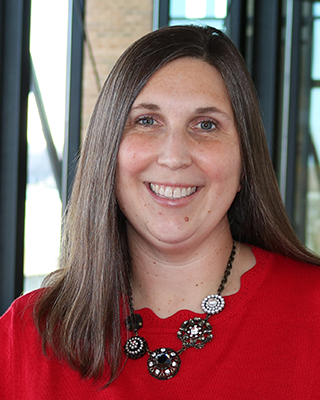 Jenny Nelson
Jenny Nelson
Senior Project Manager,
J.H. Findorff & Son
Tell us about your work:
How did you end up in this field?
- While in college, I worked for the facilities/construction department as a co-op student. I realized that the spaces that people live and work in are vital to their enjoyment of their jobs and surroundings. This led me to a career in construction. The company that I worked for right out of college worked in a lot of health care facilities, so I got the opportunity to be a part of many different health care projects. Seeing how valued the built environment is to patients and staff led me to specialize in this type of work.
What do you like about your work?
- I love helping health care organizations take their projects from concept to beautiful, functioning, maintainable spaces. I also really like the ability to work with teams of people and the coordination needed to get all the different groups (nurses, physicians, patients, facilities, bio-med, IT, contractors, etc.) within the project to work together to make the idea become a reality.
- My favorite project that I led was a new inpatient behavioral health unit. The existing space was incorrectly laid out and not safe for staff or patients anymore. It was designed just before all the new Joint Commission standards were released, so we had to do a lot of research and revising to make sure what we were planning met all current and potential future requirements. We worked with past patients, staff and designers to create a calming and safe space. There were competing codes and interests to work through and issues of items claiming to be ligature resistant when they were not. I was lucky enough to be on the unit when the patients moved from the old space into their new one. You could watch them visibly exhale and see the stress leave (even for a moment) when they walked in. Seeing how much a space can positively affect people has made a lasting impact on me and how I do my job.
What are some of the new challenges in your field?
- With COVID, there have been many challenges. One of the more prevalent challenges with construction projects has been the slowed delivery and rising costs of materials. This is particularly challenging with how funding cycles work in health care. Many projects being approved now were budgeted one to three years ago. The money approved is based off those estimates, and the users expect their project to start the day after they get approval. It is essential to manage timeline expectations with end users and help the finance team understand that the projects might be more expensive and why.
Tell us how you developed professionally:
What advice would you give your younger self?
- I would tell my younger self that it's okay not to have all of the answers before you speak up. I always felt like I had to be a subject matter expert on everything to be heard (in a room of men usually much older than me). As I've gotten older, I've realized that it's okay to ask questions when something isn't clear. It's okay to say, "I don't know, but I will look into it and get back to you." I believe it's important to do research and know the trends and requirements of what you're working on; but there are a lot of people out there that specialize in the things you don't know. Be sure to utilize their expertise as well. Being able to connect people is almost as important as knowing the answers.
Who influenced you the most in your career?
- When I started at my first job, there was one other female project manager. She took me under her wing and became my person. She taught me that you don't have to scream and yell to get things done, that it's okay to admit you were wrong, and how to properly insert yourself into a conversation. Dena was usually one of the quieter people in the room but was so detail-oriented and prepared you knew when she spoke, you needed to listen and follow. She also taught me that my family is just as important as my career, and it was okay to set time to be there for my loved ones. I have tried to emulate the way she created a team people wanted to be a part of, and the care she showed for all people.
Tell us about your time away from work:
- Most of the time I'm not working I'm playing chauffer or coaching my children's activities. My family attends sporting events of all kinds, and we love being out in our community attending concerts and events. I also volunteer on a few boards. I am the current president of our local chapter of Wisconsin Healthcare Engineering Association (WHEA) and a member of the WHEA foundation board. I am also the president of the Oregon, WI library board and am helping lead the way to build a new library for my community.
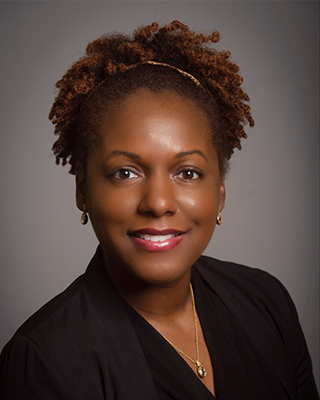 Lotoya Beard
Lotoya Beard
Interim Executive Director,
The University of Alabama at Birmingham Birmingham, AL
Tell us about your work.
-What do you like about your work?
I work in hospital maintenance and our efforts to maintain our 1,000-plus bed and six million square foot hospital is truly the definition of teamwork. Each health care department represents a specialty service, but when all the departments work together, you have an effort that provides an excellent environment of care for the patients. To sum it up, I like the joint efforts and comradery that we have as a team to support our health care facility.
Tell us about your time away from work.
What do you like doing in your spare time?
I enjoy spending time with my family riding bikes on a local trail or going anywhere there is a beach!
What do you aspire to do moving forward?
What would your dream job be?
My dream job would be a chief operating officer for a health care organization. I have always considered myself “The Best Right-Hand Man,” and I take pride in helping my superior implement their vision and goals.
Anything else we should know?
What is a fun fact about you?
I don’t drink coffee, so all the passion and energy my team gets…it’s all natural!
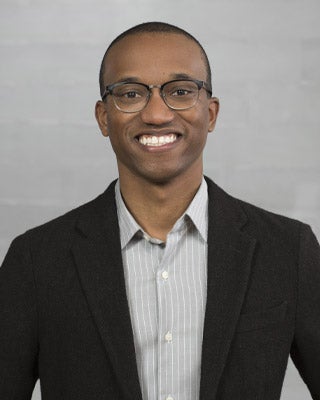 Connor Frazier, SASHE, CHFM
Connor Frazier, SASHE, CHFM
Electrical Engineer
HGA Architects and Engineers
San Francisco, CA
Tell us about your work.
- How did you end up in this field?
I grew up thinking I wanted to be an architect. I also always enjoyed math, and as I got older, physics. Combining these interests led me to study architectural engineering in college where I was introduced to the more complex components and factors of building electrical systems design. At the beginning of my career, I was fortunate enough to work in a variety of market sectors but was particularly drawn to health care projects. Over time I found myself diving deeper into the design process and with the help of a great support network I was able to learn more and experience design challenges that only helped to fuel my passion for the field.
- What do you like about your work?
There are many parts of my work that I enjoy, but one thing that initially came as a surprise to me was the interpersonal aspect of electrical engineering in a health care facility. We can design an electrical system any number of ways to meet codes and standards, but I value developing relationships and working with facilities groups and other hospital staff to make sure that our design is optimized to best fit their needs and how they would like to operate within the building. I have been lucky to meet some great folks over the years and with their input, guidance, and trust we have developed electrical systems that I feel best support our clients and help to keep patients and staff safe.
Tell us about your time away from work.
- What do you like doing in your spare time?
I’m an active person, and generally like to do anything outside. I especially enjoy hiking, cycling, and playing soccer. My dog has turned me into a runner and I love being with him, but the jury is still out on whether I enjoy running itself.
Tell us how you developed professionally.
- What advice would you give your younger self?
Take an active role in learning as much as possible. Don’t be afraid to ask questions, people in this industry are eager to share their experiences and insight. If a design seems odd or unique, there is probably a good reason behind it. Try your hardest to understand the challenge that prompted that solution so that if you encounter something similar in the future you are prepared to help your team.
What do you aspire to do moving forward?
- What are some of your goals working the field?
One of my goals is to help further our field by supporting the next generation of engineers and designers. I would love to be in a place where I can be a resource for, and to help foster skills and excitement in someone new to our field. I have a network of professionals that helped and continue to help me navigate my career and an engineer and dream of providing that guidance to someone else.
Anything else we should know?
- What things are on your bucket list?
Personally - I love to travel, there are plenty of places both within the country and internationally that I’d love to visit. Professionally – I’d love to be a part of a net-zero design project which only feels like a matter of time.
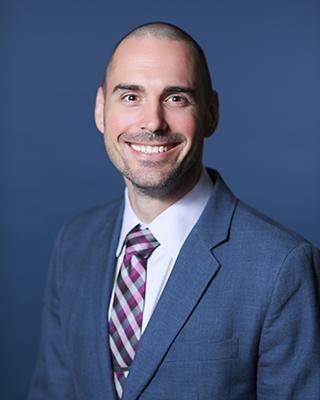 Joshua Brackett, SASHE, CHFM
Joshua Brackett, SASHE, CHFM
Special Projects Manager
Baptist Health System
Little Rock, AR
Tell us about your work.
- How did you end up in this field?
I ended up working in health care engineering accidentally. I got my degree in fire protection and wanted to be a firefighter, but wasn’t able to get onto a department after college. I started doing fire protection work for hospitals at an engineering firm and eventually became the national director of business development. This is when I started getting involved with ASHE. I left to be an executive at a regional fire protection contracting firm, which opened my eyes to issues in the field.
I worked closely with Baptist Health during that time. When I left the contracting firm, I called Baptist’s VP and told him I was starting my own company, and he asked me to apply for a job instead. So, I became the system special projects manager for support services for Baptist.
That company – Legacy FM – was the brainchild of my wife, Lindsey Brackett. I am the co-founder, and we work tirelessly with our team to solve some of the biggest issues that plague facilities management. Our primary focus is to empower the people that keep our hospitals running through developing custom training and education programs that meet the specific needs of the facility or system.
- What do you like about your work?
The best part about my work is all the people that inspire me and lift me up. I am blessed to have a full-time job in a large system where I have a voice in the direction of our growth and improvement and can work directly with our teams to constantly improve. We have now been recognized in numerous capacities by ASHE and that brings me a lot of joy. I really enjoy working with ASHE and that Baptist supports me in this. I also love that I get to work with facilities across the nation that want to empower their teams. Also, because of my background in fire protection engineering, I sit on several NFPA codes and standards.
- What are some of the new challenges in your field?
Unfortunately, our field is reactive when it comes to codes. I am constantly trying to do my small part to get new and upcoming code information out there. For example: the limitations that NFPA 70-2020 has put on reconditioning electrical equipment and the upcoming enforcement of NFPA 4, which becomes applicable five years after the adoption of NFPA 101 (2018 or newer edition). Florida has adopted this edition and it goes into effect Jan. 1, 2021.
Tell us about your time away from work.
- Interesting hobbies?
Most people don’t know that I am a competitive obstacle course racer. I have never podiumed, but I have placed top 10 several times. Someday, I’ll get it.
Tell us how you developed professionally.
- What advice would you give your younger self?
Don’t be arrogant. Don’t rush. Don’t chase the title or the money. Be happy where you are at. Give, give, give, and expect nothing in return. Never undercut someone else. Don’t be afraid to fail. Always stand up for what’s right, no matter the consequence. Never, ever give up. When you become stagnate, stir things up and add challenge to help you grow.
- Who influenced you the most in your career?
I fundamentally believe that every person that I encounter has something they can teach me. There are so many people who have mentored and shaped and continue to shape me into who I am. I haven’t forgotten any of them and they know who they are. If I had to choose a single person, it would definitely be my wife, Lindsey. I am blessed that we work in the same field and have the same passions. She has always helped push me to be better tomorrow than I am today. Watching her grow and being a part of her story has shaped and changed me so much as a person.
What do you aspire to do moving forward?
- What are some of your goals working the field?
My goals for our field are enormous. I am not afraid to discuss and work with diverse groups to tackle some of the biggest issues our field faces, such as insourcing/outsourcing ratios, staffing levels, education and training, recruiting and succession planning, skilled trades and discussions about how college isn’t for everyone. We have a chance to change our field, and I’m glad to be a part of it with so many other passionate people.
- What would your dream job be?
I can honestly say that I live my dream job(s) every day. I love what I do within the hospital system and through Legacy FM (one of the coolest things that happened this year was our partnership with ASHE on their YouTube Channel). I am always open to new opportunities that will allow me to continue to grow and give back to our field, but I resolved a while back to be happy in life where I am.
Anything else we should know?
- What things are on your bucket list?
We do experiences instead of presents in our family, and there are a few of those on on my list. I also plan at some point to run the Appalachian Trail, visit Antarctica and do adventure racing (interested, let me know). And I’d be lying if I said ASHE President wasn’t on my list.
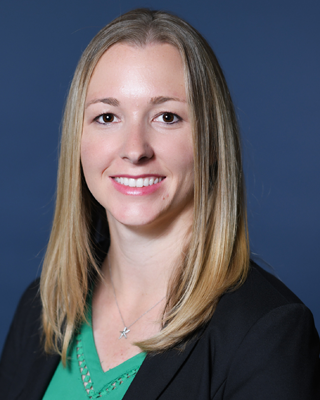 Danielle Gathje, SASHE, CHFM
Danielle Gathje, SASHE, CHFM
Director of Plant Operations
M Health Fairview
Minneapolis, MN
Tell us about your work.
I currently work as the director of plant operations for M Health Fairview and am responsible for overall facility operations of three acute care hospitals and one corporate building. Prior to my current role, I held employee safety, emergency management and facility manager roles over a nine-year period working for United Hospital, part of Allina Health. I graduated with a B.S. in biology from The University of Wisconsin - Stevens Point. I received my Certified Healthcare Facility Manager (CHFM) certification through the American Hospital Association (AHA) in July 2015. I am highly involved in the American Society for Health Care Engineering (ASHE), where I sit on several committees and task force groups. I have also served five years on the executive board for the Twin City Healthcare Engineering Association (TCHEA) and am currently the past president for the Minnesota Healthcare Engineers Association (MHCEA).
After graduating with my B.S., I expected to further pursue a career on the provider side of health care, however, I have found an amazing career on the support side. I enjoy the all-encompassing nature in my current career. Over the last 13 years of my career journey, I have continued to find ways to develop both professionally and personally through ASHE by serving on various committees and executive teams. The collaboration provides a profound opportunity and atmosphere to learn from others within my field as we continue to help others within our field to better themselves through education. I am looking forward to continuing that development through an MBA program I started this fall.
Tell us about your time away from work.
I live in Afton, MN with my husband and our two children, Fritz (9) and Gigi (7). We also have two dogs, three cats and one fish. The kids keep us highly active with their sports activities, including soccer, hockey, dance and basketball. We also love to travel to warm weather destinations during the winter months. Recently I have been able to take some time for myself and thoroughly enjoy our Peloton bike to decompress and reflect.
Tell us how you developed professionally.
Joining ASHE so early in my career gave me the opportunity to build my professional network. It connected me with various associate and professional members that influenced me to get involved in the board of my local chapter. As my career has evolved, I have had the opportunity to participate in committees and executive teams, and to speak at conferences, all of which allows our field to collaborate and drive better outcomes through safer building practices.
The three people whom have had a profound influence on my career are Dean Pufahl, Richard Schreiner and Doug Pariseau. It’s hard to capture in a short paragraph how the three of them have influenced me. They encouraged me to pursue a career in facilities, supported me in obtaining education, and mentored and supported me as I navigate through my continued development as a facilities leader. It’s hard to sum up the appreciation I feel for them, but their influence has been profound.
What do you aspire to do moving forward?
My vision for my career and leadership is to lead within a health care setting, ensuring patient and staff safety, driving quality improvement strategies with integrity and compassion. I may not be a direct patient care provider; however, I do believe I can positively influence exceptional patient care by supporting and driving quality outcomes for the patients we serve.
My passion is taking care of the environment that takes care of the people. This passion takes a network of people to continue to grow with and learn from to find innovative solutions to provide an exceptional environment for the patients and those that care of those patients. As health care is ever evolving with code changes, technology and the expectation to streamline costs while creating value-based patient care, so must we as facilities leaders in the environments that we serve.
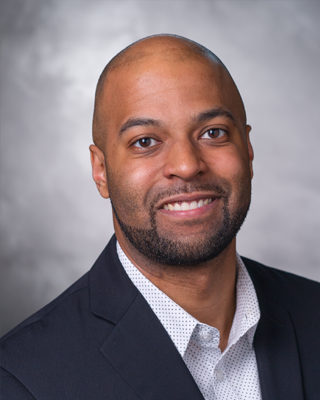 Ryan Ollie, PE, CHFM, CEM
Ryan Ollie, PE, CHFM, CEM
Manager of Facilities Operations
Advocate Condell Medical Center
Libertyville, IL
Tell us about your work.
What do you like about your work?
I really enjoy solving challenging problems with our team. In health care facilities management, there are rarely ever any dull days.
What are some of the new challenges in your field?
As innovation provides new resources and process changes for health systems, it is often challenging to adapt our existing workflows to some of these innovations.
Tell us about your time away from work.
What do you like doing in your spare time?
When I am not working and have some spare time on my hands, I like to fish. It helps me relax and enjoy the outdoors.
Interesting hobbies?
Fishing, watching college football (Go Blue!) and watching movies.
Tell us how you developed professionally.
What advice would you give your younger self?
I would tell my younger self to ignore the naysayers and to surround myself with supportive people.
Who influenced you the most in your career?
My parents. They are some of the hardest-working people that I have ever known, and I strive to be like them every day.
What do you aspire to do moving forward?
What are some of your goals working the field?
I genuinely enjoy learning new skills that enhance my effectiveness as a leader. As I continue to develop in my field, I am always trying to grow as a professional.
What would your dream job be?
I love what I do right now. If I had to do something else, it would probably also involve helping people.
Anything else we should know?
What is a fun fact about you?
My younger brother is way taller than me. I am just shy of 6’3 and he is 6’8.
What things are on your bucket list?
Before I leave this earth, I want to travel to all of the continents.
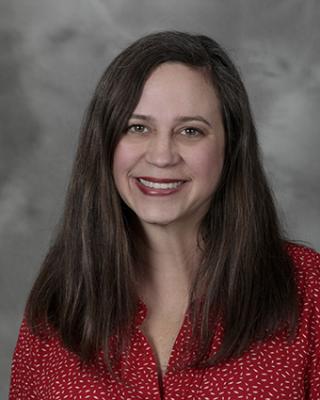 Melissa McCain, CHPEW
Melissa McCain, CHPEW
Supervisor, Quality & Compliance – Facilities Maintenance
IU Health Academic Health Center
Indianapolis, Indiana
Tell us about your work.
I am the supervisor for facilities quality and compliance for Indiana University Health’s Academic Health Center (AHC) in Indianapolis, Indiana. I deal with fire safety and utility systems compliance, which includes overseeing required documentation and working with teams to resolve life safety deficiencies and other safety issues. I also contribute to policy, education and subcommittee work and other projects.
I am also a director of the Indiana Society for Healthcare Engineering and a member of ASHE’s Equity/Diversity/Inclusion (EDI) task force.
What do you like about your work?
What I do now really is a perfect fit for my strengths and the things that drive me: I learn something new every day, improve processes and resolve compliance and safety issues, and no two days are alike in my world.
I’m a passionate person, and I am very passionate about facilities personnel maintaining a physical environment where every patient has a chance to heal; that we – like physicians – “do no harm” and never compromise a patient’s environment of care.
I’m grateful to work for IU Health and the AHC and proud of the superior care we provide to thousands of patients every year.
What are some of the new challenges in your field?
My greatest challenge since entering the health care maintenance world has undoubtedly been the proverbial elephant in the room: entering this field as a woman, and a woman who didn’t study engineering or have any maintenance experience, was not easy.
I have met many women in our field – both owners and vendors – who share a similar story. And I know there are other underrepresented minorities who experience bias.
Serving on the ASHE EDI task force has given me confidence to stand strong in my role when frustrating situations arise. That is essentially the mission of our EDI task force: to let all ASHE members know they have a place at the table – regardless of their gender, age, race or background – and to ensure they are welcome.
Tell us how you developed professionally.
I was an education major and then spent 15 years in commercial property operations. If you told me 20 years ago that one day I would belong to an organization with ‘Engineering’ in its name, I would have laughed.
I arrived at IU Health in 2013 as a contractor to work with vendors and the maintenance department to resolve a number of outstanding LS deficiencies before our imminent Joint Commission survey. But I had no idea what even constituted “life safety,” what The Joint Commission was and how critical an accreditation survey was.
In seven years, I have learned and done more than I ever imagined. I know from experience it can be daunting when you transition into this world. Serving on the ISHE Board and being an active ASHE member has allowed me to meet others who are also passionate about supporting patient safety, and it’s given me the opportunity to help develop meaningful education and training. I’ve expanded my knowledge and professional growth by learning from others with a wide variety of experience.
Being chosen by one of ASHE’s major sponsors last year to participate in ASHE’s four-year Leadership Institute was also a great honor and has also expanded my network with many “shining stars” in our field.
Who influenced you the most in your career?
My dad, Martin Luther King, Jr., a boss I loved, and a boss I did not love – all for various reasons.
There are of dozens of colleagues who have influenced me since joining this industry. One thing I really love is the sense of community. There’s less competition and more sharing of best practices and information than in other fields. The sharing of this information is invaluable – especially during extraordinary times such as the COVID pandemic.
What do you aspire to do moving forward?
I hope to survey for an accrediting organization and then move on to consulting. I love being able to help others solve problems and implement best practices, so I think those are natural next steps in the evolution of my career.
I also hope to become the first female president of ASHE.
Tell us about your time away from work.
I’m mom to three boys: 21, 17 and 16. I love to travel, cross items off my bucket list, ride my Harley, attend concerts, listen to music and read. I’m a huge fan of the St. Louis Cardinals and the Green Bay Packers. I also like to write and send old-fashioned handwritten letters and cards. It’s a lost art.

